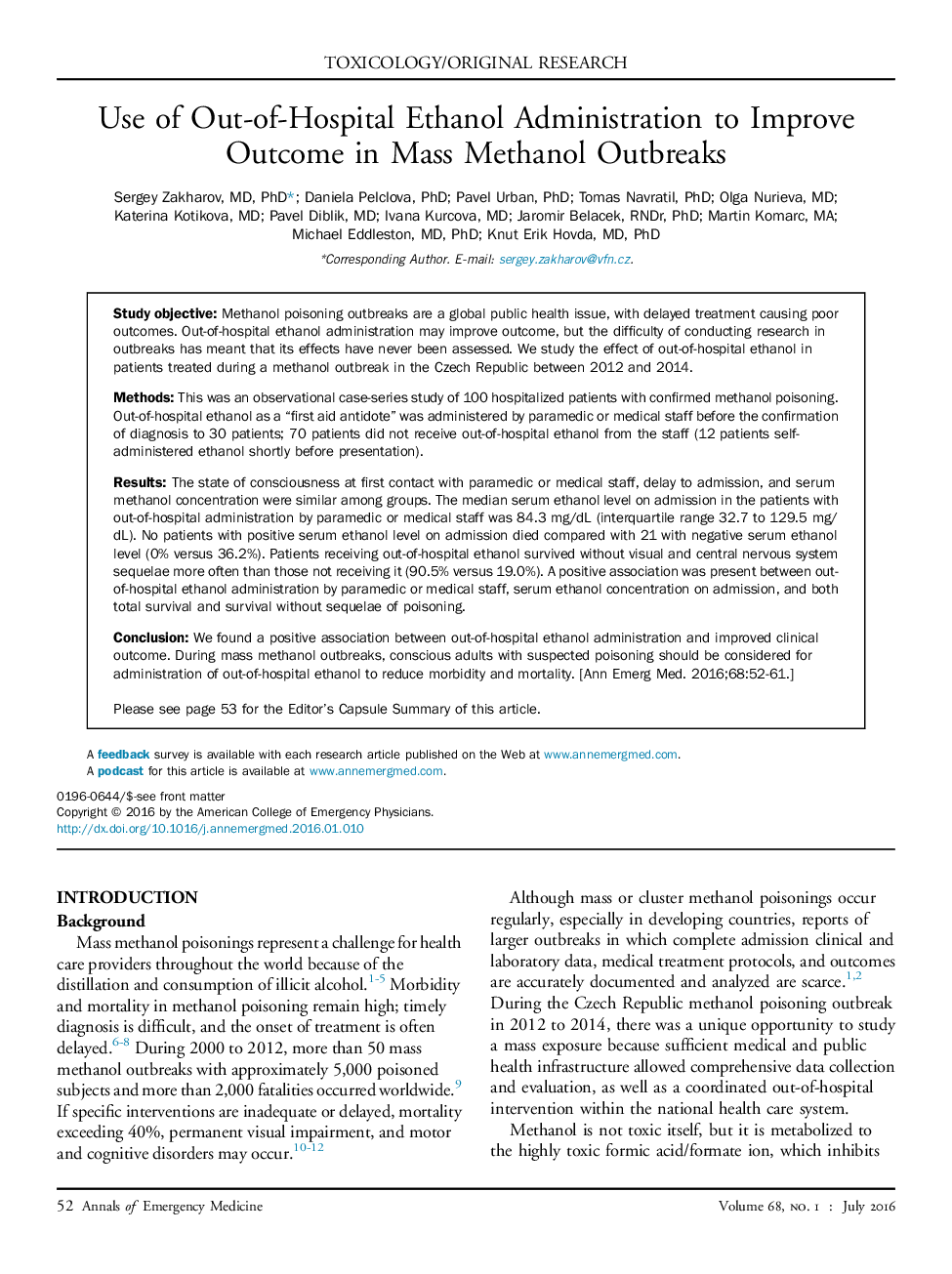| Article ID | Journal | Published Year | Pages | File Type |
|---|---|---|---|---|
| 6080622 | Annals of Emergency Medicine | 2016 | 10 Pages |
Study objectiveMethanol poisoning outbreaks are a global public health issue, with delayed treatment causing poor outcomes. Out-of-hospital ethanol administration may improve outcome, but the difficulty of conducting research in outbreaks has meant that its effects have never been assessed. We study the effect of out-of-hospital ethanol in patients treated during a methanol outbreak in the Czech Republic between 2012 and 2014.MethodsThis was an observational case-series study of 100 hospitalized patients with confirmed methanol poisoning. Out-of-hospital ethanol as a “first aid antidote” was administered by paramedic or medical staff before the confirmation of diagnosis to 30 patients; 70 patients did not receive out-of-hospital ethanol from the staff (12 patients self-administered ethanol shortly before presentation).ResultsThe state of consciousness at first contact with paramedic or medical staff, delay to admission, and serum methanol concentration were similar among groups. The median serum ethanol level on admission in the patients with out-of-hospital administration by paramedic or medical staff was 84.3 mg/dL (interquartile range 32.7 to 129.5 mg/dL). No patients with positive serum ethanol level on admission died compared with 21 with negative serum ethanol level (0% versus 36.2%). Patients receiving out-of-hospital ethanol survived without visual and central nervous system sequelae more often than those not receiving it (90.5% versus 19.0%). A positive association was present between out-of-hospital ethanol administration by paramedic or medical staff, serum ethanol concentration on admission, and both total survival and survival without sequelae of poisoning.ConclusionWe found a positive association between out-of-hospital ethanol administration and improved clinical outcome. During mass methanol outbreaks, conscious adults with suspected poisoning should be considered for administration of out-of-hospital ethanol to reduce morbidity and mortality.
